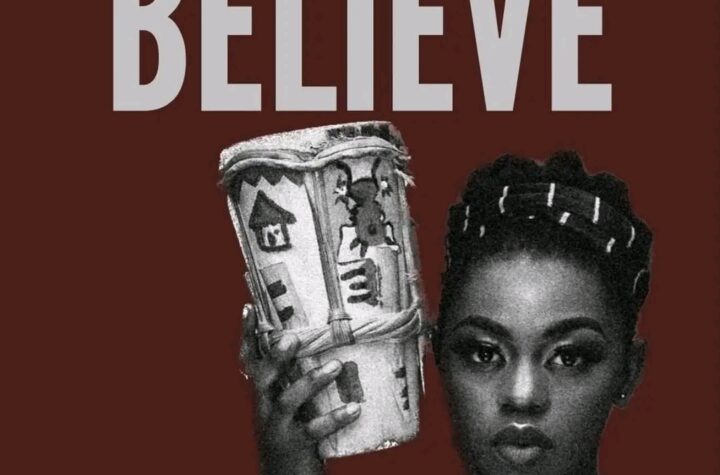
80/20 is a protectionism idea, advocating that a maximum percentage of domestically produced cultural content should be consumed by Cameroonians.
The objective is to preserve Cameroon’s cultural identity and diversity, boost the support for domestic artists, increase their visibility and enhance cultural economic growth.
It is a great concept, which is improperly conveyed by its proponents, giving an outlook of h@te against Nigeria.
A country like Canada, which is bilingual like Cameroon implemented the quota system due to the influx of American cultural content. The implementation of the policy has been struggling due to globalization and other dynamics in play.
In Canada, the quota system was implemented through government involvement and public awareness.
In order to implement a music quota system, the G0vernment has to establish regulations or legislation that require radio stations, TV stations, blogs, streaming platforms, or other music distribution channels to allocate the 80-20 percentage of their airtime or catalog to domestic or locally produced content.
Implementing a music quota system requires public awareness and engagement. Educating Cameroonians about the importance of protectionism will ignite consciousness to support homegrown products. With proper communication, it will intrinsically become a responsibility for Cameroonians to support their own. Supporting your own will strengthen social cohesion, a sense of belonging within our communities, foster pride and unity. Integrating the idea in the school curriculum like in Civics and Ethics may be one of the solutions.
After government involvement through legislation and public awareness, it becomes a Herculean task to establish mechanisms for monitoring compliance of the 80-20 quota system.
80-20 is facing a challenge due to the following reasons;
1. GLOBALIZATION
Globalization has blurred musical boundaries and the world is vibing to rhythms without caring where they come from.
In an interconnected world, 80/20 clashes with the free flow of ideas, information, and cultural products. This is the reason why we are experiencing tensions between proponents that aim at preserving cultural identity and those embracing global influences. Cameroon has to adapt to the changing global dynamics.
2. CENSORSHIP
With the poor method of communication, 80-20 limits the diversity of ideas and artistic expression. Dictatorial censorship can stifle creativity and inhibit the exchange of cultural experiences. Cameroonian artists will be walking on eggshells; afraid of exploiting foreign genres.
3. CONSUMER CHOICE
In the era of vinyl, cassettes, CD tapes, a policy of protectionism could be possible but in this digital age of streaming and music virality on TikT0k, it is difficult to control consumer choices. Given Nigeria’s physical and cultural proximity to English-speaking Cameroon, instituting the policy of protectionism is a hard nut to crack.
4. INTERNATIONAL RELATIONS
80-20 may have a far-reaching impact on the diplomatic relations between countries.
Lapses in communicating the quota system idea may be misinterpreted as h@te or xen0phobia.
It may lead to retaliatory measures from other countries and hinder cultural exchange and cooperation. For instance, the idea has been inappropriately heralded by its proponent, causing a misinterpreted by some Nigerians.
5. LACK OF INCLUSIVITY
Overemphasis on protecting Cameroon’s cultural identity is placed in the two English-speaking regions, oblivious to the 8 French-speaking regions, which is the country’s majority. Artists of the French-speaking regions are enjoying collaboration with Ivory Coast and Gabon, while Anglophone collaboration with neighboring Nigeria has been reprimanded by 80-20 proponents.
6. LONGTIME CULTURAL INFLUENCE FROM NIGERIA
Nigeria’s cultural influence on English-speaking Cameroon is multifaceted. The influx of Nigerian movies into the Cameroonian market in the 90s and their music in the early 2000s profoundly influenced Cameroonians to adopt some Nigerian slangs and parlance. For 3 decades, Cameroonians have predominantly consumed Nigerian cultural Content and with the advent of social media, it has become more affordable.
ALGORITHM
Social media algorithms analyze user interactions with content to provide personalized recommendations. Language similarities play a role in understanding user preferences and suggesting relevant content. For example, if a user interacts with posts in pidgin, the algorithm may prioritize showing them content in languages closely related.
The algorithms also leverage this understanding to deliver culturally relevant content to users based on their language preferences and browsing history. English-speaking Cameroonians are therefore seeing more of Nigerian content on their timelines more than content from French-speaking Cameroon.
The current problem we are facing is that proponents of the 80-20 campaign are not striking a balance between preserving cultural identity and fostering openness to diverse influences.
Due consideration is not given to technological advancements and the changing societal norms.
80-20 is a brilliant concept, which is difficult to implement but Cameroonians can be self-conscious to support their domestic cultural products.
Artistic expression should have no restrictions in the digital age. However, it is recommended that artists incorporate some Cameroonian parlance on their songs to give a unique identity.
#nexdimempire




More Stories
PROMISING CAMEROONIAN ARTIST DUANE DROPS “WAIT”
SLIMSINGAH DROPS NEW EP DUBBED “ATTENTION”
MUSIC VIDEO: J KREE – BELIEVE